Drug Crimes
Drug crimes are one of the most common offenses in North Dakota. In 2017, authorities made over 260,000 arrests for drug violations in the state of North Dakota alone.
Nearly half of those were for possession, with crimes related to sales making up the remainder.
If you have been arrested or are under investigation for a drug crime in North Dakota, this article will help you understand your rights and explore the various legal defenses that may be available to you.
Drug Crimes in North Dakota
You may be charged with a drug crime in North Dakota if you possess, sell, or have intent to sell any controlled substance (illegal drug). You may also be charged if you fail to comply with any rules regarding these illegal drugs. Both possession and distribution of controlled substances can have a devastating impact on your life.
This guide is designed to give you an overview of what it means to be criminally charged for drug possession or sales in North Dakota. It will also provide an overview of defense strategies that may be helpful to you if you find yourself facing a legal threat from a drug possession or sales charge.
Types of Drugs Prohibited
North Dakota law prohibits the sale, possession, manufacturing, cultivation, and trafficking of a variety of controlled substances. The chart below lists some of the drugs that are prohibited in North Dakota. However, it is not an exhaustive list. For more information and a full list of illegal controlled substances, please see the North Dakota Century Code Chapter 19-03.1.
Schedule I Drugs
Opiates (heroin & opium derivatives)
Fentanyl & fentanyl derivatives
Methamphetamine & similar stimulants
GHB & other barbiturates
Hallucinogenic substances like:
LSD & PCP
Marijuana
Peyote
Psilocybin
Cannabis and synthetic derivatives
MDA, MDMA, PMA, ecstasy
Schedule II Drugs
Combination Opiates (<15 mg of hydrocodone)
Vicodin
OxyContin
Dilaudid
Adderall & ritalin
Schedule III Drugs
Prescription products (<90 mg of codeine)
Tylenol with codeine
Anabolic steroids & testosterone
Schedule IV Drugs
North Dakota law is vague in what it classifies as a Schedule IV drug. It states that Schedule IV drugs have a low potential for abuse relative to Schedule III drugs, are accepted for medical use in the US, and may lead to limited physical dependence. ND law doesn’t list specific drugs, but the DEA states this can include:
Xanax
Valium
Ambien
Schedule V Drugs
Prescription products (<200 mg of codeine).
Antidiarrheal, antitussive, and analgesic purposes like:
Lomotil
Robitussin AC
Parepectolin
Possession with intent to distribute
In North Dakota, it is unlawful to manufacture or possess a controlled substance with the intent to distribute the drug to others.
The severity of this crime in North Dakota is based on the drug’s schedule classification listed above.
Possession with the intent to distribute Schedule I, II, or III drugs (excluding marijuana) can face a Class B felony. This charge carries a maximum sentence of 10 years in prison and a $20,000 fine.
Possession with the intent to distribute marijuana or a substance classified as a Schedule IV drug can face a Class C felony. This charge carries a penalty of 5 years in prison and $10,000 fine.
A substance classified in Schedule V, is guilty of a Class A misdemeanor. This carries a penalty of 360 days in jail and up to a $3,000 fine.
It is also illegal in North Dakota to create, deliver, or distribute a counterfeit substance. This means you can be arrested for selling non-illicit substances simply labeled and marketed as controlled substances.
A counterfeit substance classified in Schedule I, II, or III is guilty of a Class B felony.
A counterfeit substance classified in Schedule IV is guilty of a Class C felony.
A counterfeit substance classified in Schedule V is guilty of a Class A misdemeanor.
If the state can prove you employed an individual under the age of 18 to assist in the distribution of a controlled substance, you could face a Class B felony charge that carries an additional 10 years in prison.
Possession of a Controlled substance
It is illegal in North Dakota to possess drugs unless authorized by a doctor. The law breaks down the severity of drug possession charges based on the type of drug, how much is in your possession, and if you have a previous drug conviction.
North Dakota drug laws are extremely complicated. If you have been charged with drug possession, call one of the attorneys at Ringstrom DeKrey to discuss your situation in person.
Any person who violates this law is guilty of a Class A misdemeanor for the first offense and a Class C felony for a second or subsequent offense.
If the individual is caught possessing a controlled substance while on school property, they could face a Class B felony.
Marijuana Possession in North Dakota
As of January 2022, it is illegal in the state of North Dakota to possess marijuana without a prescription. Individual caught with the following amounts could be found guilty of a crime.
At least one-half ounce (14.175g) but not more than 500g of marijuana is a Class B misdemeanor and could face up to 30 days in jail, a $1,500 fine, or both.
More than 500g of marijuana is a Class A misdemeanor and could face 360 days in jail and up to a $3,000 fine.
Using a Controlled substance
The North Dakota Century Code calls the act of physically taking drugs “analog use.”
This includes the act of ingesting, inhaling, or absorbing drugs into your body. If caught under the influence of an illegal controlled substance, individuals could face a Class A misdemeanor for a first offense and a Class C felony for subsequent offenses.
In the individual is under the age of 21 and is caught under the influence of drugs, they could face a Class B misdemeanor, equaling 30 days in jail, a $1,500 fine, or both.
Drug Paraphernalia
The North Dakota Century Code has a law surrounding drug paraphernalia that aims to keep others safe from harmful items used to administer drugs.
This law involves the proper disposal of needles. Drug users are expected to dispose of syringes and needles in a way that prevents reuse by any person other than the original user. Individuals who do not follow this statute could face an additional Class A misdemeanor.
Aggravating Factors
There are several activities that can cause your drug charge to be more severe in the eyes of the law. Here are some aggravating factors that could cause harsher penalties.
Endangerment of Child or Vulnerable Adult - a person who knowingly permits a child or vulnerable adult to be exposed to a controlled substance is guilty of a Class C felony equaling 5 years in prison, a $10,000 fine, or both.
Bodily Injury to a Child or Vulnerable Adult - if a child or vulnerable adult suffers bodily injury due to the exposure or ingestion of a controlled substance, the negligent individual could face a Class B felony which includes a 10-year prison sentence, a $20,000 fine, or both.
Death of a Child or Vulnerable Adult - if the child or vulnerable adult dies due to the exposure or ingestion of a controlled substance, the negligent individual could face a Class A felony. Class A felonies could result in 20 years in prison and a fine of $20,000.
School Hours or School Sponsored Activities - if drugs are possessed or sold on school property or at a school sponsored event, you could face a harsher penalty.
Possession of a Firearm - having a firearm in your possession at the time of the drug offense will result in a more severe penalty.
Sale Resulting in Death - if a death or overdose can be directly attributed to the sale of a controlled substance, the individual who sold the substance will face a harsher penalty.
Defense Strategies
If you are facing a drug charge in North Dakota, it is important to fully understand your legal rights and the potential consequences of a conviction. It is also crucial to understand the potential punishments you may face if convicted.
Trying to navigate through the criminal justice system without an experienced attorney can be a daunting task. The law itself can be difficult to understand, and most people charged with drug crimes don't know how the criminal justice system works.
There are many defenses that can be utilized in fighting a drug crime charge. A successful defense may result in charges being dropped or reduced. Below you will find a list of ways we’ve defended previous clients.
Entrapment
Entrapment is a defense strategy based on the argument that law enforcement officers have gone beyond their mandates in an attempt to get you to commit a crime.
The majority of people who have been arrested for drug possession, distribution, or manufacturing have been targeted by police informants or undercover officers. In the case of entrapment, law enforcement officers used unethical tactics, threats, or coercion to encourage you to commit a crime.
For example, an undercover cop may pretend to be someone who wants to buy drugs from you -- but they might encourage any illegal behavior or offer you money or other incentives to do so. If they do something like this and then arrest you, it may qualify as entrapment. And if it is, your charge will be dismissed.
malicious intent
The defense of malicious intent is rarely available in drug cases, but in some situations, it can be a viable defense.
To use the malicious intent defense, you must establish that you did not intentionally distribute drugs and that you were not reckless or negligent in failing to recognize the presence of a controlled substance. If you intended to distribute a different substance, for example, the malicious intent defense may be a valid strategy.
The best way to establish this defense is by showing that the controlled substance was substituted for something else without your knowledge. A defendant can also show that they did not intend to distribute drugs on the basis of an honest mistake about the identity of the substance. Instead, he or she believed it was something else entirely.
For example, if a defendant mixed up cocaine with powdered sugar, it could be reasonable to assume that he or she did so unintentionally and therefore did not have malicious intent.
Illegal Search and Seizure
This defense involves a violation of your Fourth Amendment rights, which protects U.S. citizens from unlawful searches and seizures by law enforcement officials. Time and again, courts have held that police cannot invade a person's privacy without a warrant or probable cause.
When officials conduct a search without such items, it often results in an illegal search of your car or home.
If this is the case, then any evidence that was discovered during the search is excluded from court, including any and all drugs found. Usually, when drug evidence is deemed inadmissible in court, the government’s case against you disappears and charges are dropped all together.
Schedule a free consultation
Email: assistant@ringstromlaw.com
Tel: 218-284-0484
730 Center Ave #202
Moorhead, MN 56560

